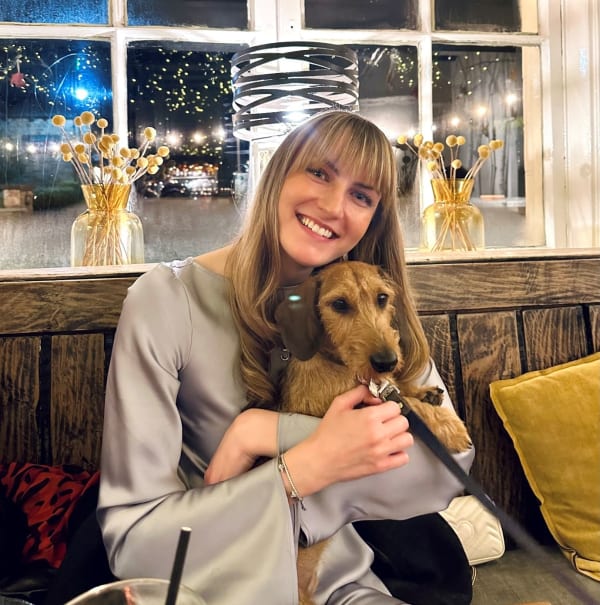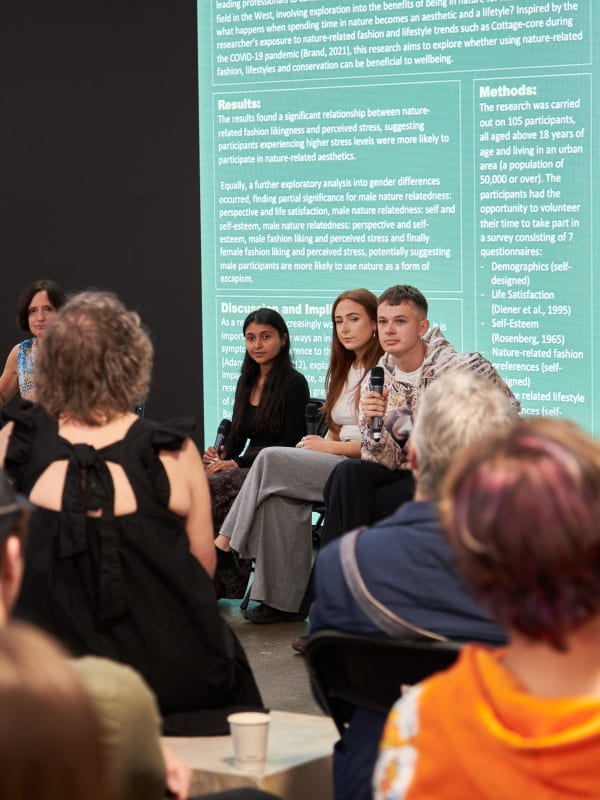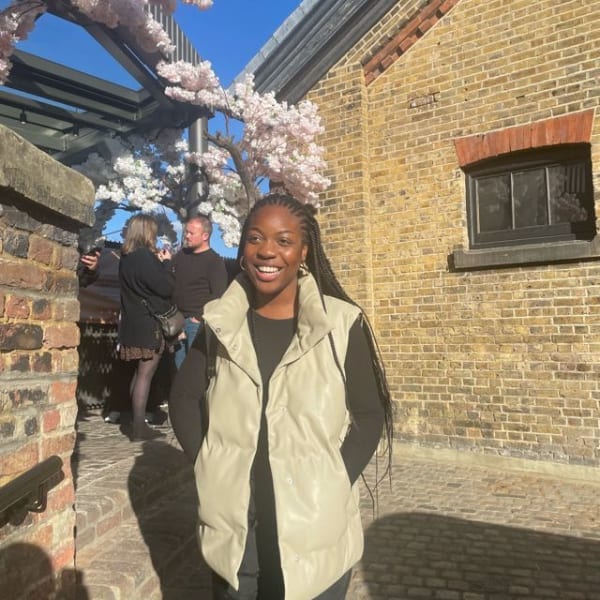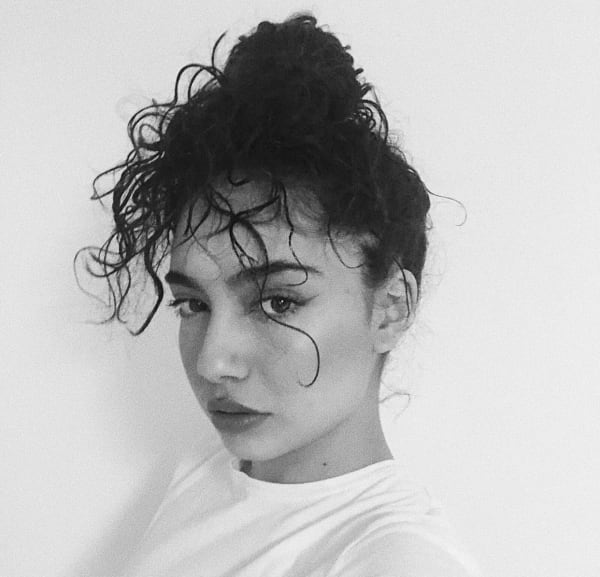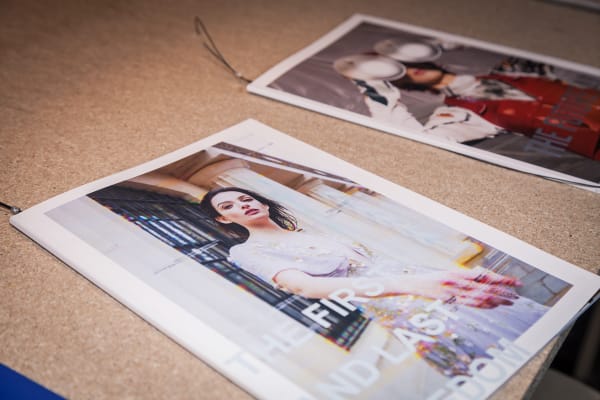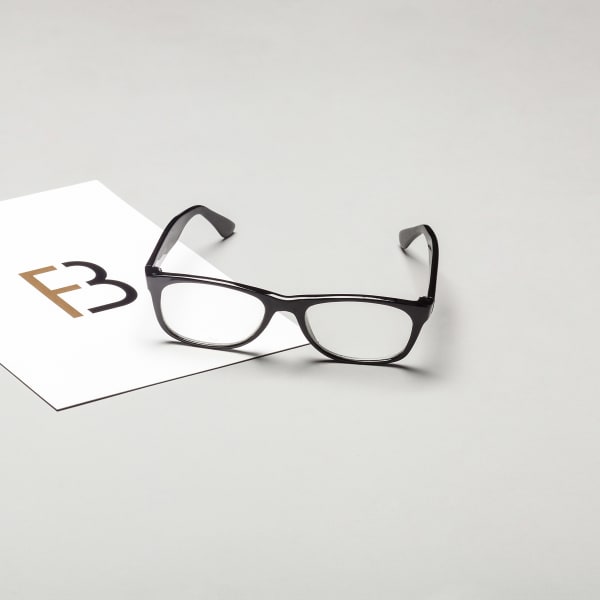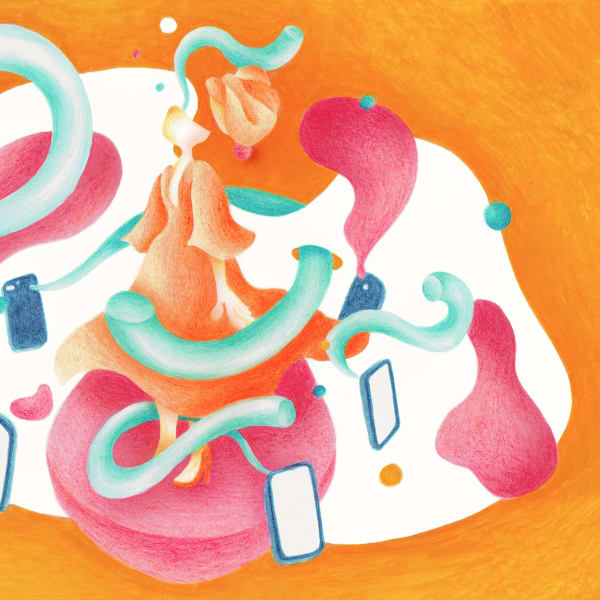Course units
This course will run across three blocks with taught content units in Block 1 and Block 2 and completed with an independent research unit in Block 3, which is the award bearing unit.
The units are detailed as follows:
Block 1
Fashion Marketing Strategy
The fashion industry continues to experience both innovation and disruption as political, economic, social, technological, environmental, and legal changes present ongoing challenges and opportunities. Our programme places a strong emphasis on addressing critical issues related to climate change, racial and social justice within the fashion business through the continual study of sustainable fashion practices and the promotion of Equality, Diversity, and Inclusion.
The Fashion Marketing Strategy unit introduces the main theories, concepts, and ideas that guide the transformation of traditional business models in times of change. This unit is the starting point for understanding, analysing, critiquing, and developing strategy through solid planning. You will gain knowledge of all business functions, from leadership to operations, and explore how they intersect with marketing.
This unit allows you to think strategically about markets and brands and understand how fashion marketing strategy works in practise, its impact on stakeholders, and how it fits within the overall strategic direction of a business. You will also examine the role of marketing in promoting sustainable fashion and fostering a more inclusive and equitable industry.
Consumer Behaviour and Commercial Insights
Exploring modern consumer behaviour is a key aspect of fashion marketing and a critical skill sought after in the industry. It is also the focus of many academic studies. This module is divided into two parts to provide students with a comprehensive understanding of this subject.
The first part examines the fundamentals of consumer behaviour, including the psychological factors that influence individual consumers and the sociological aspects that shape consumer behaviour within society. This includes studying the consumer journey, from initial attraction to long-term retention, and understanding how these insights can be applied in a professional context.
The second part focuses on developing research skills, which are essential for academic success, completing the Masters project (MAP), and for future professional development. Students will learn about research philosophies, design methodologies, and various approaches, as well as gain knowledge of research tools and analytical techniques. This will provide a strong theoretical foundation for future research projects and encourage engagement with innovative market research methods.
Throughout the module, there will be a continued focus on understanding and addressing the impact of consumer behaviour on critical issues such as sustainability, equality, diversity, and inclusion within the fashion industry.
This unit combines academic rigour with practical relevance, providing learners with the skills to understand the current consumer landscape and anticipate future consumer behaviours, while also considering the importance of promoting responsible and ethical practices in fashion marketing.
Block 2
Marketing Trends and Strategic Innovation
Building on the units from block 1, the Marketing Trends and Strategic Innovation unit takes you into a deeper level of study and the ability to imagine a new future for the industry.
The current fashion landscape is highly dynamic and disruptive, requiring brands to identify and critically evaluate innovation strategies that can be adopted by businesses.
This innovative unit will enable you to understand the development of trends, the relevance of forecasting methods, and the ability to use innovation frameworks applied to modern marketing ecosystems. The focus is on developing strategies for businesses through informed research to predict changes and navigate the complex realities of innovation while maintaining a consumer-centric approach.
Throughout the unit, you will also explore how these strategies can be leveraged to address critical issues such as sustainability, equality, diversity, and inclusion within the fashion industry. By examining innovative approaches to marketing and business, you will gain insights into how the industry can evolve to become more responsible and ethical.
This unit requires you to think as a future fashion leader, being a catalyst for change and driving innovation grounded in commercial thinking. You will develop the skills needed to identify opportunities for positive transformation and create strategies that balance business success with social and environmental responsibility.
Branding and Communications
The Branding and Communications unit is designed to provide students with a comprehensive understanding of the complexities involved in building and managing strong brands within the fashion industry. This unit explores the history, strategy, complexity, and creation of brands, offering a nuanced perspective that includes both traditional and modern branding methods. Students will critically analyse brand management principles, examining the lifecycle of a brand from its creation through potential decline and subsequent revival.
In terms of communications, the unit investigates the various tools that make up the communication mix, providing insights into the crucial roles of advertising, content creation, and public relations. The curriculum is further enhanced by an in-depth examination of the future of marketing, with a particular focus on digital strategies that are transforming the landscapes of digital and virtual worlds.
Throughout the unit, students will also consider how branding and communications can be used to promote positive change in the fashion industry, such as advocating for sustainable practices, diversity, and inclusion. By examining the power of brands to influence consumer behaviour and drive social progress, students will gain a deeper understanding of the potential for fashion marketing to make a positive impact.
By completing this unit, students will gain a comprehensive understanding of the dynamic relationship between branding and communications, equipping them with the knowledge and skills needed to navigate the evolving challenges of the fashion marketing domain while also considering the importance of using these tools responsibly to promote ethical practices within the industry.
Elective Units
In Block 2, students will have an opportunity to take an elective unit. Individual unit descriptors can be found in the Electives Handbook.
Block 3
Masters Project
The Masters Project is the culmination of your studies, where you will have the opportunity to showcase your depth of knowledge, research skills, and strategic thinking in an independent research project that holds both academic and industry value. With the support of a dedicated supervisor, you will develop a self-directed project that demonstrates your unique skills and perspective on an area of strategic fashion marketing. This project can be either a theoretical exploration or a practical consultancy project, serving as a valuable asset in shaping your future career path.
Throughout the process of researching and writing your Masters Project, you will refine your skills in project management, critical thinking, and advanced analysis. These skills will provide a strong foundation for your success in the dynamic and ever-changing landscape of fashion business.
As you embark on your Masters Project, you will also have the opportunity to explore how your research can contribute to addressing important issues in the fashion industry, such as sustainability, diversity, and inclusion. By focusing your project on these critical areas, you can demonstrate your commitment to using your skills and knowledge to drive positive change in the industry.
The Masters Project is your opportunity to leave a lasting impact and showcase your expertise to potential employers, setting the stage for a successful career in the fashion industry. It is a chance to apply all that you have learned throughout your studies and to make a meaningful contribution to the field of strategic fashion marketing while also promoting responsible and ethical practices in the industry.


